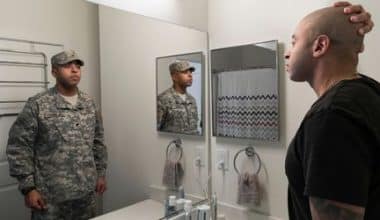A nurse anesthesiologist specializes in giving patients anesthesia before, during, and after operations. Nurse anesthetists are a vital part of the healthcare team, working together with other nurses, plastic surgeons, and doctors to guarantee the best outcomes for their patients. This is done in a wide range of settings, including hospitals, ambulatory surgical centers, and medical offices. In this article, I will take you through all you need to know about the salary of an anesthesiologist nurse, its requirements, how to become one, and the difference between a nurse anesthetist and an anesthesiologist (nurse anesthetist vs anesthesiologist).
Who is a Nurse Anesthesiologist?
Nurse anesthesiologists are highly trained medical professionals whose specialty is the safe and painless administration of anesthesia for surgical and other medical procedures. Depending on their function, organization, and the type of care facility they operate in a CRNA’s expected duties may also include providing pre- and post-operative care.
How to Become an Anesthesiologist Nurse
A complete education and substantial experience are necessary for one to become a nurse anesthesiologist. This is because the profession requires a high degree of autonomy in decision-making and careful attention to detail. Hence, to become a nurse anesthesiologist, you need to complete the following steps:
#1. Get a Bachelor’s Degree
Nurses need a bachelor’s degree before applying to nurse anesthesiologist training programs. Typically, RNs will continue their education and achieve a BSN. Some graduate schools may still consider applicants who do not major in nursing. However, registered nurses who are enrolled in a BSN completion program are exempt from this rule. Clinical rotations in emergency care settings are also beneficial for aspiring nurse anesthesiologists.
#2. To Become an Anesthesiologist Nurse, You Must Pass the NCLEX Exam
The NCLEX-RN is a national licensing exam for those hoping to work as registered nurses. Illnesses and treatments, nursing practice, the medical field, operating as part of the medical team, and patient interaction are just a few of the topics covered in this computer adaptive test that can last up to six hours. In addition to federal standards, states have their requirements that RNs must meet.
#3. Gain Experience
You can apply for a nursing license in the state where you want to work once you’ve passed the NCLEX. The NCLEX is accepted across the country, allowing you to begin your profession wherever you happen to be. Finding a job as a registered nurse in a hospital’s emergency department or intensive care unit is a great way to gain the medical experience you’ll need to become a certified registered nurse anesthesiologist. The frequency with which licenses in the nursing profession must be renewed varies by state but is typically every two to three years.
#4. Acquire a Master’s or a Doctorate Degree in Nursing
To work as a nurse anesthesiologist, one needs to get either a master’s or a doctoral degree. This is because nurse anesthesiologists are classified as advanced practice registered nurses (APRNs). At this time, candidates are being accepted into programs for a Master of Science in nursing anesthesiologists, a degree that, on average, may be earned in around two years.
CRNAs will need a Doctorate of Anesthesiology Practice (DNAP) degree by 2025. When that time arrives, CRNAs who are already employed and hold a master’s degree will be able to continue working, while newly hired CRNAs will need a DNAP.
#5. Maintain Your Reputation
After you have achieved the credentials of a CRNA, you will want to ensure that you continue to maintain them by doing the essential procedures. CRNAs are required to recertify themselves every two years to maintain their work. This requires a total of forty hours of further education to be completed throughout the two years.
Anesthesiologist Nurse Salary
Certified nurse anesthesiologists (CRNAs) command the highest salaries of any nursing specialty. Nurse anesthesiologists must have outstanding judgment, ability, experience, and education to handle their patients’ anesthetic needs. The Bureau of Labor Statistics, however, reports that the average annual salary for a nurse anesthesiologist is $202,470. The estimate will change based on your specific job and state of residence. The standard rate of compensation can fluctuate widely depending on the level of demand in your region.
Factors That Affect the Salary of an Anesthesiologist
The annual salary of a certified registered nurse anesthesiologist (CRNA) may vary depending on the individual’s level of experience and the type of organization employing them. CRNAs with more experience typically command greater wages.
The cost of living and the need for medical care vary from one area to the next, which may also have an impact on salaries. Subsequently, a CRNA’s salary may be higher in a healthcare facility than it would be in the private sector.
Nurse Anesthesiologist Requirements
The nurse anesthesiologist requirements include the following:
- Time is the most essential requirement for a certified registered nurse anesthesiologist. This is because time is required to execute the entire procedure.
- Bachelor’s degree in nursing.
- Licenses
- Minimum of one year of acute care exposure that contributed to the development of the nurse’s skills. When a nurse encounters every docile situation in the intensive care unit, she gains the ability to manage any circumstance.
- Master of Science in Nursing (MSN) CRNA certification state licensure
Generally, to become a nurse anesthesiologist, one must first become a registered nurse. You probably already know that this may involve either a Bachelor of Science in Nursing (BSN) or an Associate of Science in Nursing (ADN). Hence, before specializing in a particular area of advanced nursing practice, all APRNs must first get their registered nurse certification. However, certain APRN schools may have pathways for RNs with only an ADN, so it’s important to shop around.
While a Master’s degree is often expected for nurse anesthesiologist roles, many APRNs choose to further their education with a Doctor of Nursing Practice (DNP) or a Ph.D. It is also true that many licensed nurse anesthesiologist programs mandate a year of clinical experience before enrollment. Most states require APRNs to have a master’s degree from an accredited program, a valid RN license, and a national certification exam, regardless of specialty. According to the BLS, several states prefer applicants with a second license specific to their APRN specialty.
Skills of an Anesthesiologist Nurse
They include:
- Multitask
- Pay close attention to the specifics.
- Work well under duress.
- Collaborate with a variety of personality types.
- Be adaptable and adapt to changing circumstances.
- Prioritize duties
- Comprehend written material.
- Read and comprehend materials related to employment.
- Understand spoken information.
- Write plainly so that others can comprehend.
- Listen and ask questions of others.
- Speak plainly so that listeners can comprehend you.
Nurse Anesthetist vs Anesthesiologist
In contexts outside of the medical industry, the terms “anesthetist” and “anesthesiologist” are frequently used interchangeably. This is because many people believe that these two types of medical experts have the same functions and obligations regarding the management of pain. Several people are surprised to learn that these are two distinct professionals. Both the administration of anesthesia and general patient care are required. However, these are two quite different types of work that call for very different levels of knowledge. People who are interested in pursuing employment in anesthesia should have a solid understanding of both the medical and surgical fields. To help you, we’ve discovered the distinction between a nurse anesthetist and an anesthesiologist. Thus, they include the following:
- Nurse anesthetists focus more on the patient and the task at hand. However, anesthesiologists, have much more autonomy in managing the operation of anesthesia and making decisions about the course of treatment for a patient( Nurse anesthetist vs Anesthesiologist).
- Anesthesiologists and anesthetists both play crucial roles in the healthcare system. Hence, to alleviate patients’ discomfort during medical operations, anesthesiologists often work in hospitals’ ICUs and operating rooms. Outside of hospitals, anesthesiologists can be found in a variety of other settings, such as doctor’s offices, healthcare facilities, and outpatient rehabilitation centers ( Nurse anesthetist vs Anesthesiologist).
- To become an anesthesiologist requires a minimum of 12 years of study (6 years of undergraduate study, 4 years of medical school, and 3 years of residency), while to become a nurse anesthetist requires only 6-8 years of study ( Nurse anesthetist vs Anesthesiologist).
Is It Hard to Be a Nurse Anesthesiologist?
The majority of programs to become an anesthesiologist demand a minimum of 2,000 hours of direct patient care linked to anesthesia. This period doesn’t encompass the time you will spend preparing for clinical or for challenging patients, so keep in mind that you will need additional time for that. CRNA education is challenging because, in addition to your curriculum, you must fulfill rigorous clinical requirements.
What Type of Nurse Is Most in Demand?
All registered nurses are in greater demand than those in other fields. The BLS anticipates a 6% increase in available jobs for all registered nurses between the years 2021 and 2031, compared to a 5% increase in available jobs for all occupations. However, the fields of infant nursing, surgical nursing, and critical care nursing are examples of nursing specializations that are experiencing very high demand.
Do Most Nurses Make Six Figures?
As of 2023, the Bureau of Labor Statistics (BLS) of the United States of America reports that the median annual wage for registered nurses is $77,600. However, that is simply the average salary across all nursing areas; the highest-paying nursing occupations have annual salaries that exceed $195,000!
What Is the Easiest Nursing Job That Pays Well?
They are:
- Clinic Nurse.
- Traveling Nurse.
- School Nurse.
- Summer Camp Nurse.
- Nurse Administrator.
- Public Health Nurse.
What Is the Daily Life of a Nurse Anesthetist?
Each day, nurse anesthetists are responsible for monitoring patients while they are undergoing surgery. This entails the preparation and administration of medications before anesthesia and the management of patients’ airways and arterial conditions throughout the surgery.
Is a Nurse Anesthetist a Stressful Job?
A Certified Registered Nurse Anesthetist (CRNA) assists patients in getting ready for surgery and monitors their pain levels before and after the procedure. Their primary concern is providing treatment and assistance to patients. Although it has tremendous potential for financial reward, it is also an extremely demanding field, both while one is still in school and after one has graduated. This area of nursing can also be an extremely difficult specialty.
Why Are Nurse Anesthetists Paid So Much?
The role of CRNA involves very advanced levels of knowledge and expertise, which is one reason for the high average compensation of CRNAs. Certified registered nurse anesthetists are required to have at least a Master of Science in Nursing (MSN) degree. This is in contrast to the majority of nursing employment, which just demands that you possess a bachelor’s degree or even an associate’s degree.
Is Nurse Anesthetist Harder Than Doctor?
Although it is not easy to earn a degree as a certified registered nurse anesthetist (CRNA), medical school is by far the more difficult path to take to become a doctor.
Who Are the Highest Paid Nurses?
Medical professionals who are Board-Certified registered nurses! CRNAs have an annual salary of $195,610, which is much higher than the salary of any other type of nurse or nursing specialty.
Wrapping Up
Certified registered nurse anesthesiologists are in high demand, but there is a long and difficult path to becoming one. So, if you can make it through all the exams and assessments, you will be rewarded with a promising profession and a safe future. It’s the highest-paying subfield of nursing and is widely held in high esteem. On average, it takes 10 years of full-time work, including getting a bachelor’s degree, working in the field, graduating, and then taking the certification exam. Thus, you can excel in the role of a licensed registered nurse anesthesiologist, provided you have the necessary knowledge and abilities.
References
- coursera.org
- bestcolleges.com
- nursejournal.org
- brooklinecollege.edu
- indeed.com
Related Articles
- Anesthetist Nurse: Definition, Salary, How to Become One & Difference
- HOW TO MAKE EXTRA MONEY ONLINE: 21+ Proven Ways in 2023
- BEST 20 SIDE BUSINESS IDEAS TO DO IN 2023 (+ Profitable Tips)
- NURSING HOME INSURANCE: Plans, Cost & Companies
- PERSONAL QUALITIES: Best 20+ Qualities to Success
- DEBT RELIEF COMPANIES: Top Choices & Worst Companies in 2023






